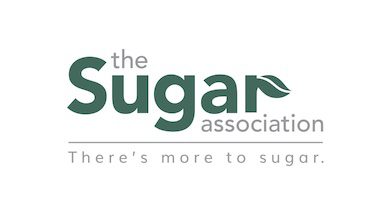

We are all desperate for a solution to obesity and related chronic diseases. But, a warning label is not it – particularly a warning label not grounded in facts. The Sugar Association’s President & CEO, Dr. Courtney Gaine, provided oral and written testimony to the Baltimore City Council today highlighting why this is a bad idea.
While well-intended, the proposed Baltimore City warning label and its assertions about the health effects of added sugars are not backed by consensus reports which dispute a unique cause and effect relationship between added sugars and obesity, diabetes or tooth decay. The Food and Drug Administration, in their recent decision on added sugars labeling, even recognized that the evidence for a link between added sugars and health just isn’t there.
Further, there are likely negative consequences to this approach.
Targeting added sugars in the fight against obesity is trending, it is seen as the low hanging fruit in the fight against obesity, but with such a narrow focus the larger picture is missed. For example, half of children in Baltimore are overweight yet only 25% consume one or more sodas per day. Not talked about are the facts that soda consumption has declined by 39% since 2000 and per capita consumption of caloric sweeteners is and has been sharply declining for 15 years. Yet, obesity rates have continued to rise during this same period of time. These data from the USDA and CDC do not make headlines.
Less than 5% of calories in children’s diets come from soda and sports and energy drinks. With 95% of children’s calories not coming from soda, will putting a warning label there really curb obesity? A warning label on soda will just serve as a “green light” to consume everything else without consideration of calories or nutritional content.
It is fundamental that children learn that their body weight and its health consequences are grounded in the relationship between how much they eat from all sources and how much they move. It is that simple. Scaring the public, and particularly children, to thinking that a serving of one product has a more negative impact on their body weight than another with similar calories is misguided.
Overstating science and oversimplifying what it takes to have a healthy lifestyle is an irresponsible public health tactic. Warning labels that target one product or one ingredient have not been proven to affect obesity rates. A single-ingredient focus will not get us any closer to solving the complex problem of obesity. We should instead turn our attention to educating American children on the importance of achieving energy balance and giving them the tools to succeed.
For media inquiries, contact media@sugar.org.

January 14, 2025
January 14, 2025 (Washington, D.C.) – The following reaction statement is attributable to Sugar Association President and CEO Courtney Gaine, PhD, RD: “The Sugar Association supports transparency, but this draft label offers only the illusion of transparency – it entirely leaves out total calories and the use of industrial additives like artificial sweeteners. In fact, […]

December 19, 2024
December 19, 2024 (Washington, D.C.) – The following reaction statement is attributable to Sugar Association President and CEO Courtney Gaine, PhD, RD: “The Sugar Association supports the Dietary Guidelines recommendation to limit added sugars to 10% of total calories, but the new “healthy” definition goes well beyond that recommendation and arbitrarily excludes many foods containing […]

December 10, 2024
December 10, 2024 (Washington, D.C.) – Americans feel more confident about managing their sugar intake when they know the Dietary Guidelines recommendation to limit added sugars to less than 10% of their total calories, and the Sugar Association welcomes the Dietary Guidelines Advisory Committee (DGAC) reaffirmation of that guideline. The added sugars guideline is a […]
© 2025 The Sugar Association, Inc. All rights reserved.
Get Social with #MoreToSugar